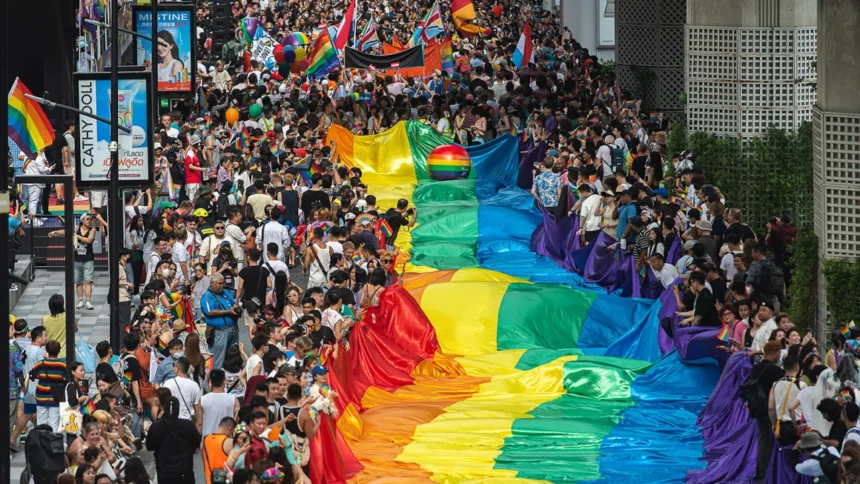Thailand Pioneers Marriage Equality in Southeast Asia
Thailand is set to become the first country in Southeast Asia to legalize same-sex marriage after its Senate approved a landmark marriage equality bill. This development marks a monumental step forward for LGBTQ+ rights in the region.
Senate Approval and Next Steps
The Thai Senate voted overwhelmingly in favor of the bill, with 130 senators supporting it and only four opposing. The bill now requires endorsement from the king, a process seen as a formality, before it becomes law. Once endorsed, the law will take effect 120 days after being published in the royal gazette.
Same-sex unions are legal in 36 countries and territories
The Netherlands was the first country to legalize same-sex marriage in 2001. Europe is the continent where the most countries have legalized unions between people of the same sex.
Regional and Global Context
Thailand will join Taiwan and Nepal as the only places in Asia to allow same-sex marriage. Taiwan legalized same-sex marriage in 2019, followed by Nepal in 2023. This move positions Thailand as a progressive leader in LGBTQ+ rights within the region.
Impact on LGBTQ+ Rights and Society
Legal Rights and Social Implications
The new law will grant LGBTQ+ couples the same legal rights as heterosexual couples, including inheritance, adoption, and healthcare decision-making. Beyond these legal benefits, the bill is seen as a powerful message of acceptance and inclusion.
Panyaphon Phiphatkhunarnon, founder of the Love Foundation, highlighted the bill’s significance: “It would not only change the lives of countless couples but also contribute to a more just and equitable society for all.”
Inspiring Change and Acceptance
The legislation is expected to inspire the younger generation to live authentically and showcase Thailand as a progressive and inclusive country. This could attract tourists and businesses, fostering a culture where LGBTQ+ individuals feel accepted and supported.
Public Reaction and Political Support
Personal Stories
Bangkok residents Pokpong Jitjaiyai and Watit Benjamonkolchai plan to get married once the law is passed. Pokpong expressed hope that Thailand’s move will inspire other countries to follow suit, emphasizing that “love is love.”
Political Endorsement
The bill received support from all major political parties. Prime Minister Srettha Thavisin, dressed in a rainbow shirt, attended Pride Month celebrations and reiterated his commitment to marriage equality. He also expressed interest in hosting World Pride in 2030.
Challenges and Regional Comparisons
Opposition and Legal Hurdles
Despite the progress in Thailand, other Southeast Asian countries remain slow to grant LGBTQ+ rights. In many countries, same-sex relations are criminalized, and LGBTQ+ individuals face discrimination, prejudice, and even violence.
Contrasting Policies in Neighboring Countries
- Indonesia: LGBTQ+ people face widespread discrimination and hostility. The new Criminal Code criminalizes consensual sex outside of marriage, disproportionately affecting LGBTQ+ individuals.
- Malaysia: Homosexuality is punishable by fines and prison terms. The government faces criticism for growing intolerance towards the LGBTQ+ community.
- Singapore: Despite repealing a colonial-era law against sex between men, the government opposes gay marriage and provides fewer legal benefits to single people.
Global Perspective
Advances and Setbacks
While some countries have made progress in LGBTQ+ rights, others remain resistant. Japan, India, and mainland China, among others, continue to face significant challenges in recognizing same-sex unions and ensuring equal rights for LGBTQ+ individuals.
Conclusion
Thailand’s decision to legalize same-sex marriage is a significant milestone for LGBTQ+ rights in Southeast Asia. It not only grants legal recognition and rights to LGBTQ+ couples but also sends a powerful message of acceptance and progress to the world.









